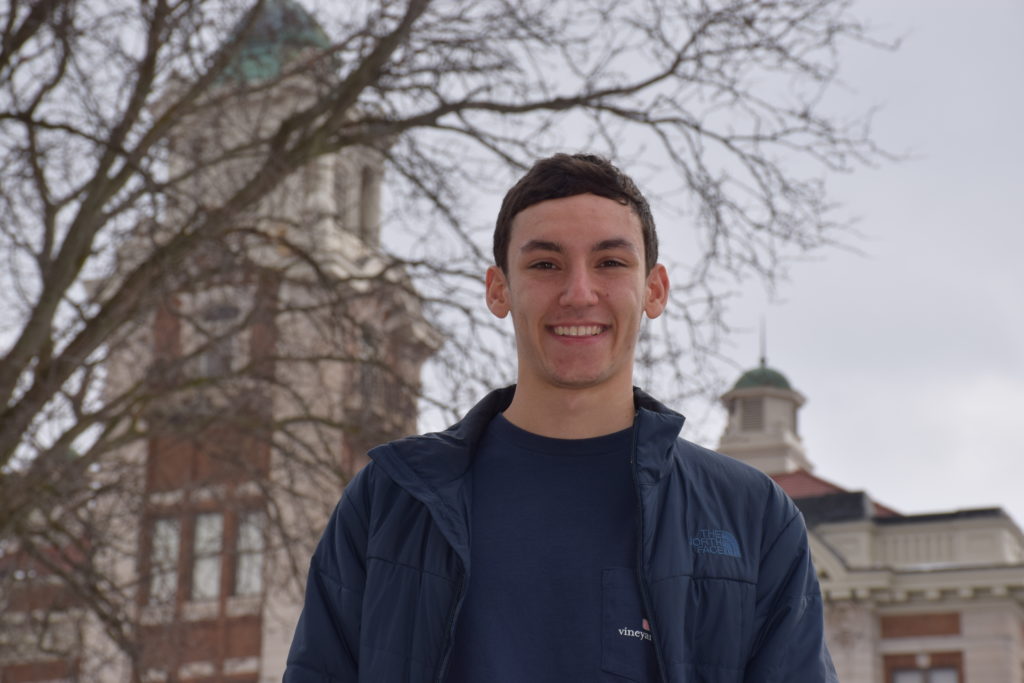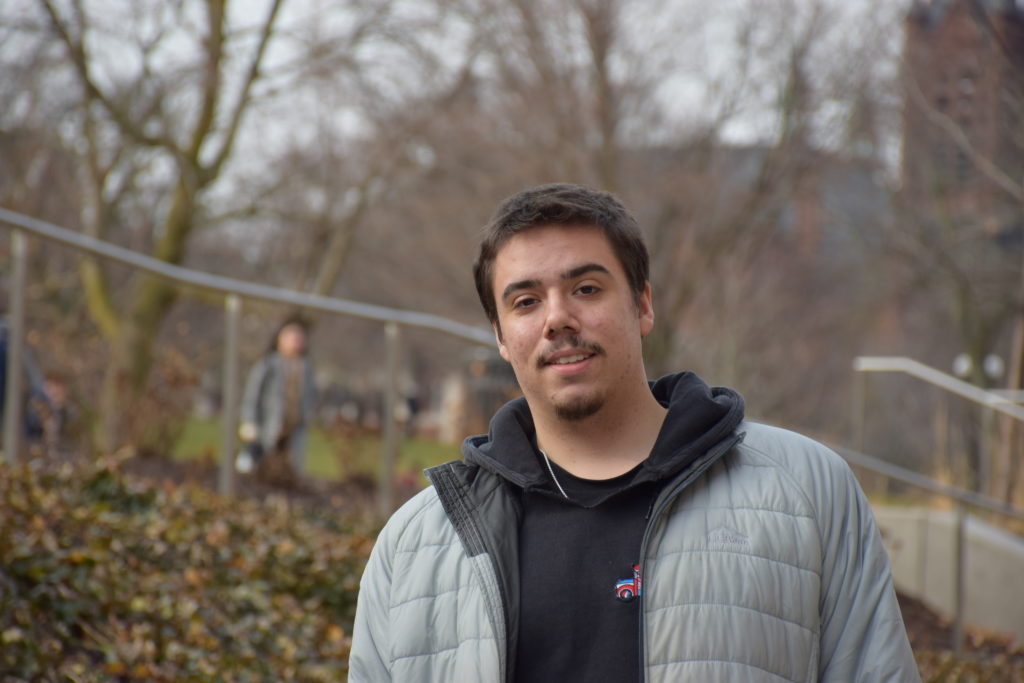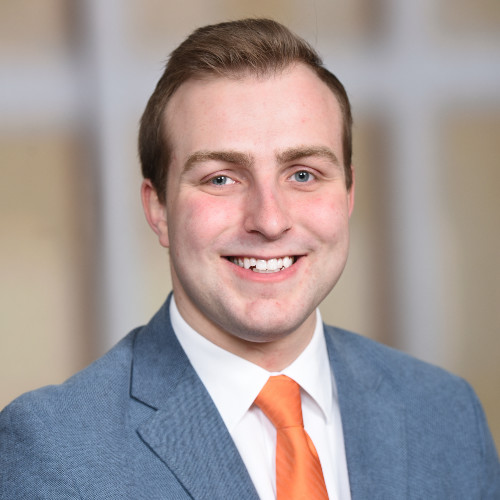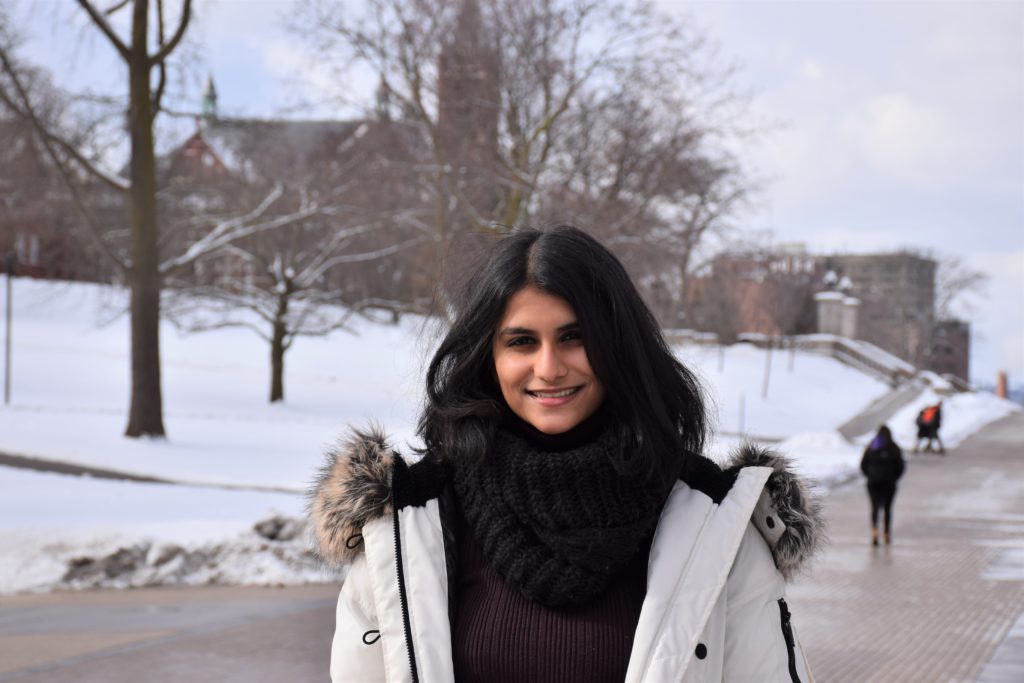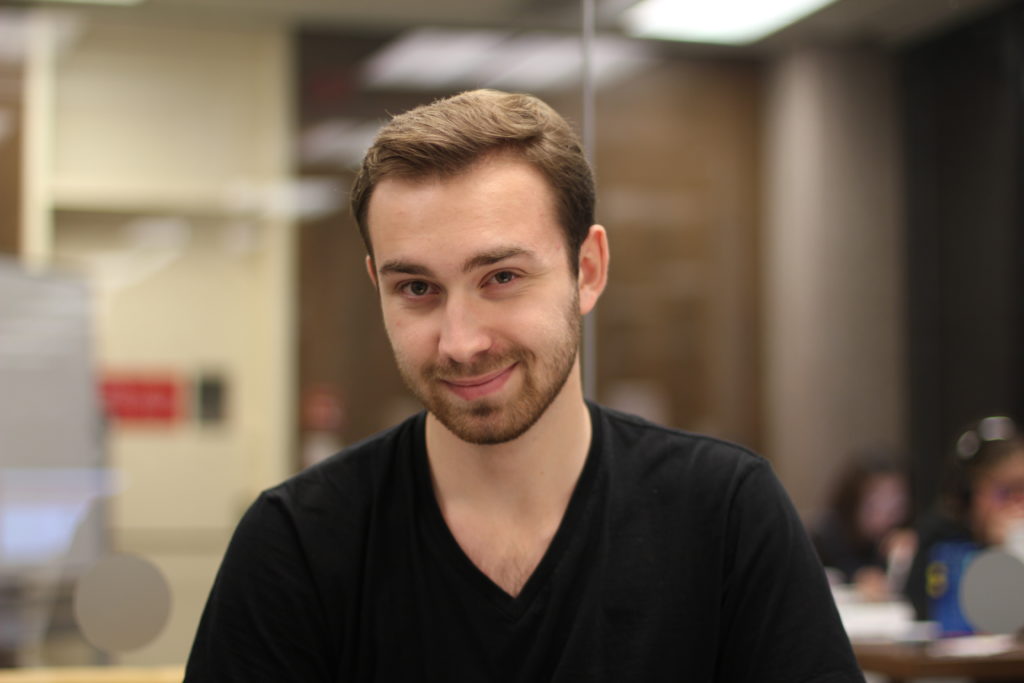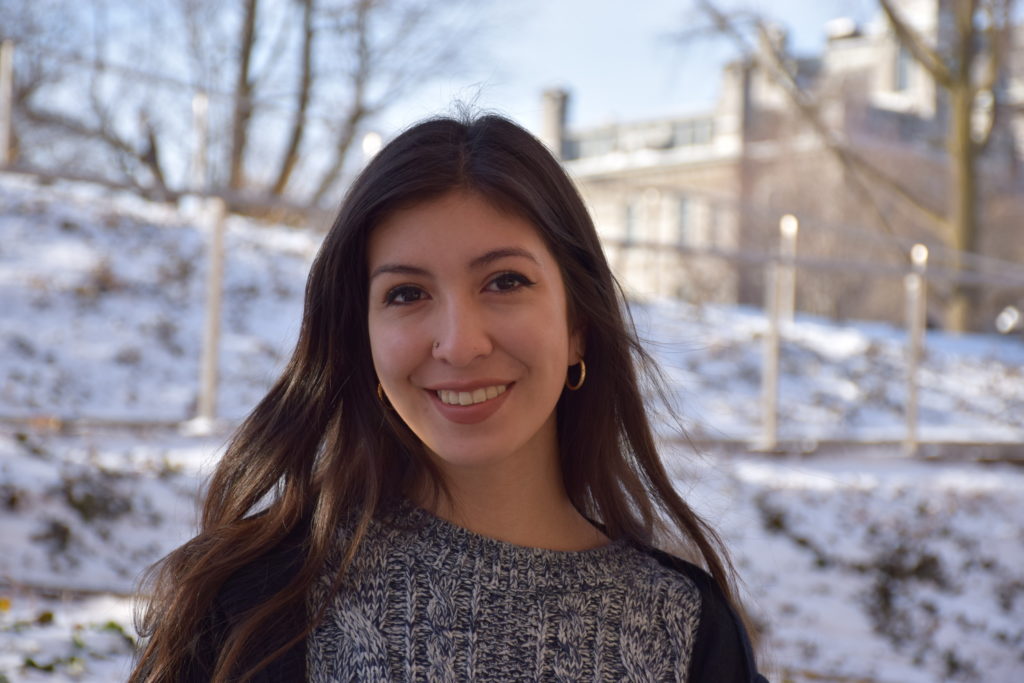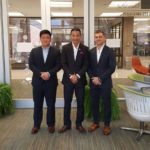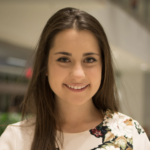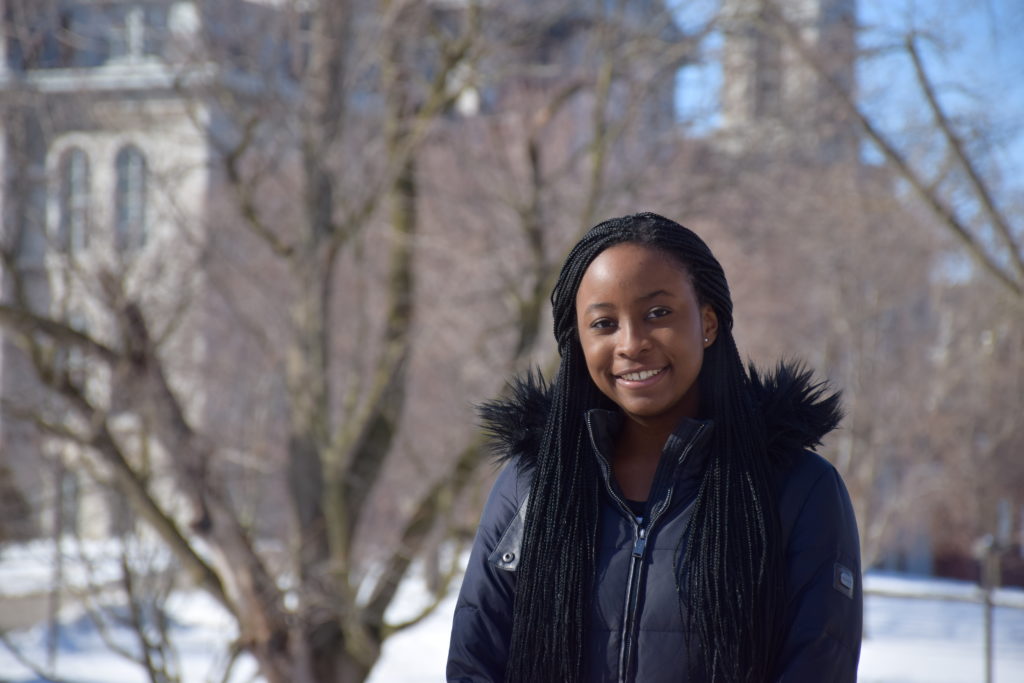
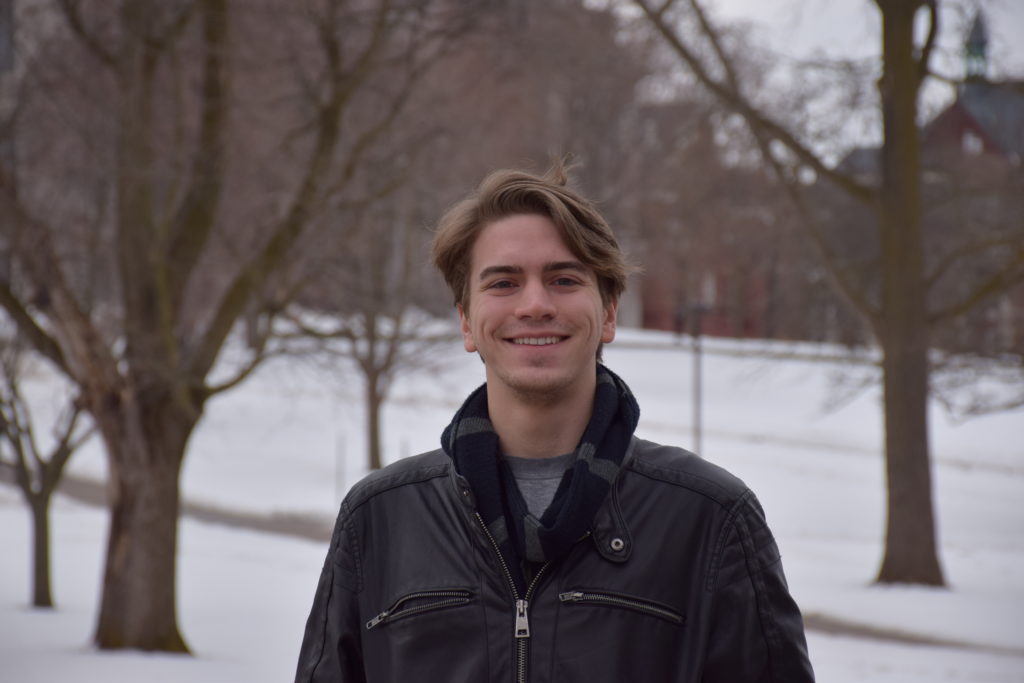
Most of us don’t realize that millions of microfibers are released each time we wash synthetic clothing in our laundry machines. These microscopic plastic fibers infiltrate the air and water, and pollute the environment around us. They enter the water supply and end up in our rivers, streams and oceans, affecting aquatic life. They wind up in the water that irrigates our farms, affecting our food supply. And they are in the air we breathe.
During the Invent@SU Invention Accelerator at Syracuse University this past summer, Charles Keppler ’18 and Serena Omo-Lamai ’20, both Engineering and Computer Science majors, created FibreFree to address the problem of environmental microfibers. FibreFree is a ball shaped device that traps the plastic microfibers that shed from synthetic clothing, and reduces the amount of pollution that travels from laundry machines to oceans. With their passion to protect ocean life and our human bodies, and their simple but well-thought out and effective solution, the team tied for first place in the recent inaugural Impact Prize competition at Syracuse University.
FibreFree can be used in either the washer or dryer. The design resembles a dryer ball, with a porous shell that allows the free flow of water and heat through the product, which contains a filter that has demonstrated its ability to trap microfibers in preliminary testing. The protrusions on the surface of FibreFree resemble a classic dryer ball, allowing the device to be the total laundry solution for both the washer and the dryer. The filter that is the core of the design, and is made up of strands that are strategically placed to catch the maximum amount of microfibers that shed from fabrics such as polyester and nylon. FibreFree’s filter is made up of 100% recyclable polyethylene.
FibreFree can be used in multiple washes, and the filter can be easily replaced, making the product a great investment for people who want to start making a change in their carbon footprint right away.
Keppler is a senior studying aerospace engineering, physics and applied mathematics. At the beginning of the six week Invent@SU Invention Accelerator program, he found the ideation process both motivating and exciting. Combined with his water filtration knowledge, he teamed up with Omo-Lamai, a sophomore studying bioengineering, and they formed a highly compatible team of co-founder inventors. By the end of the program, they produced a protoype that they tested, got feedback from industry professionals, and filed a provisional patent. They are now working with the Blackstone LaunchPad on their roadmap and commercialization strategy, and will be pitching in business plan competitions this spring.
Along the way, the duo also submitted their idea to the James Dyson Award, placing in the top 20 ideas around the world.
It’s no surprise that Keppler and Omo-Lamai are a team to watch out for.
When asked about how they persevered to create a solution to microfiber pollution, Omo-Lamai said, “It takes a certain amount of courage to say it’s a problem, I’m going to come up with a solution and I’m seriously going to see it through. Pursuing a solution is one story, the discipline to stay with the course is another.”
FibreFree will be competing in the ACC InVenture Prize campus competition on February 16, and will be participating in other funding competitions this spring.
Keep an eye out for this incredible team at the College of Engineering and Computer Science, and in the Blackstone LaunchPad in Bird Library.
Visit the FibreFree website here (https://www.livefibrefree.com).
About Invent@SU:
Invent@SU, supported by Bill and Penny Allyn, trains undergraduate Syracuse University students to “design, prototype, and pitch” as they invent tangible products. Powered by Invention Factory, this immersive, six-week program is held on the SU campus and at the SU Fisher Center in New York City. Invent@SU follows a proven method of developing students’ abilities to innovate and communicate. Students learn about design, ideation and intellectual property, then conceive an original invention, prototype the invention, and refine it in response to weekly feedback from diverse audiences of guest evaluators. The program will take place May 14 – June 22, 2018 at the Fisher Center in NYC and July 2 – August 10, 2018 on the SU campus. The application deadline is February 28.
Photos and story by Amanda Chou ‘18, Blackstone LaunchPad Global Media Fellow
